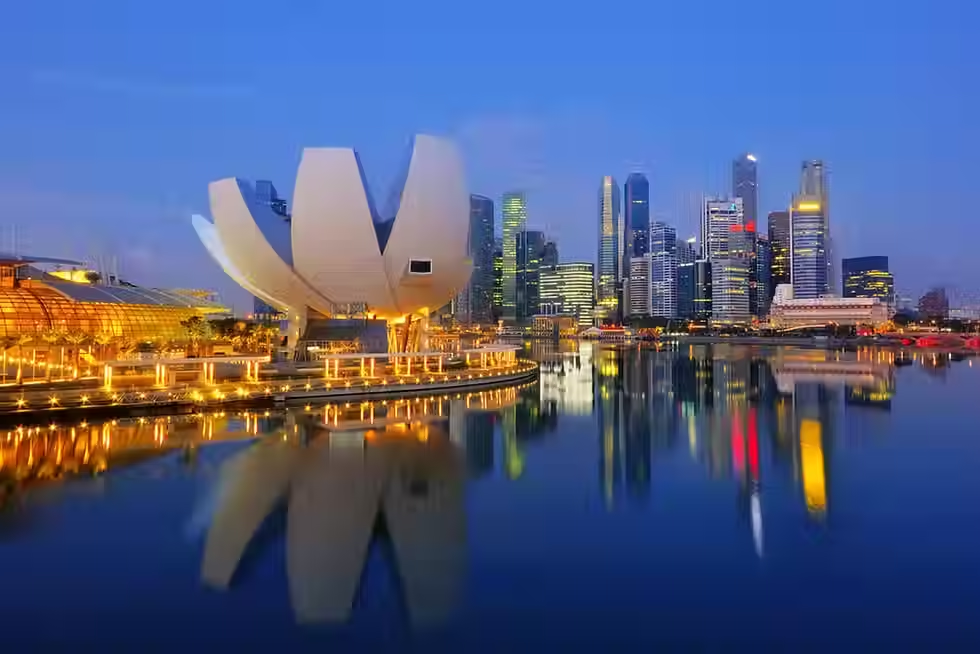ExxonMobil, Shell and the Government of Singapore cooperate to develop a CCS value chain project
- Tseles John
- Mar 3, 2024
- 2 min read
The S-Hub consortium, comprising ExxonMobil Asia Pacific and Shell Singapore, has been selected to work with the Government of Singapore as lead developers for a cross-border carbon capture and storage (CCS) project.
S-Hub and the Singapore Economic Development Board (EDB) signed a Memorandum of Understanding (MOU) in December 2023 to coordinate the planning and development of a CCS project, capable of capturing and permanently storing at least 2.5 million tonnes of CO2 a year, by 2030.
The commitment to proceed will be subject to definitive agreements between the parties.
The S-Hub project plans to capture and securely store CO2 emissions from Singapore deep underground or under the seabed. Storage sites will be selected after undergoing rigorous analysis to ensure their suitability.
Irtiza Sayyed, ExxonMobil’s Low Carbon Solutions Asia Pacific President, said, “Our extensive experience managing and building complex cross-border projects, coupled with our core capabilities in CCS, gives us the confidence to accelerate Singapore and the region’s path to net zero.”
Shell’s Global CCS Vice President Bernhard Koudelka, said, “With our global track record and deep expertise in developing CCS hubs with over 10 million tons of carbon dioxide captured to date, we have the experience needed in bringing together multiple partners and emitters to establish a complex cross border CCS network.”
Lim Wey-Len, EDB’s Executive Vice President, said, “Carbon capture and storage has the potential to be a key decarbonisation pathway for Singapore, especially for sectors with hard-to-abate emissions such as energy and chemicals, power, and waste.”
CCS is one of the few proven and safe solutions to reduce CO2 emissions at scale today from heavy industrial sectors such as steel, petrochemicals and cement.
Singapore Green Plan: advance technology and reduce costs
Under the Singapore Green Plan, the Government is keen to partner with industry to enable new streams of cost-competitive supply or explore possible pilots to couple existing production with CCUS for blue hydrogen.
Key findings from a CCUS study found CCUS, like low-carbon hydrogen, can reduce Singapore’s emissions from the industry and power sector.
Some potential CCUS utilisation pathways are currently available or nearing technologically ready levels for deployment ‘but most are not yet commercially viable without further technological advancements and cost reductions’.
The majority of CO2 emissions from industrial plant facilities are dilute (3-15%) and substantial energy and costs are needed to separate and concentrate CO2, along with capture technology development.
Manufacturing fuel and chemicals from CO2 often requires low-carbon hydrogen and is more energy-intensive than conventional processes, although this will improve as technology matures and new pathways develop.
Agencies will study new catalysts and novel chemical pathways in utilising CO2 for more cost-effective solutions.
In other signs that Asia is stepping up its CCS activities, a Petronas subsidiary and three Japanese firms have signed a Storage Site Agreement (SSA) as they look to unlock CCS opportunities in Sarawak .
Air Liquide recently announced it will build a new plant in Singapore and upgrade existing plants internationally, as part of an over €50m investment to supply high-purity nitrogen to GlobalFoundaries .
source: gasworld.com (Dominic Ellis)







Comments